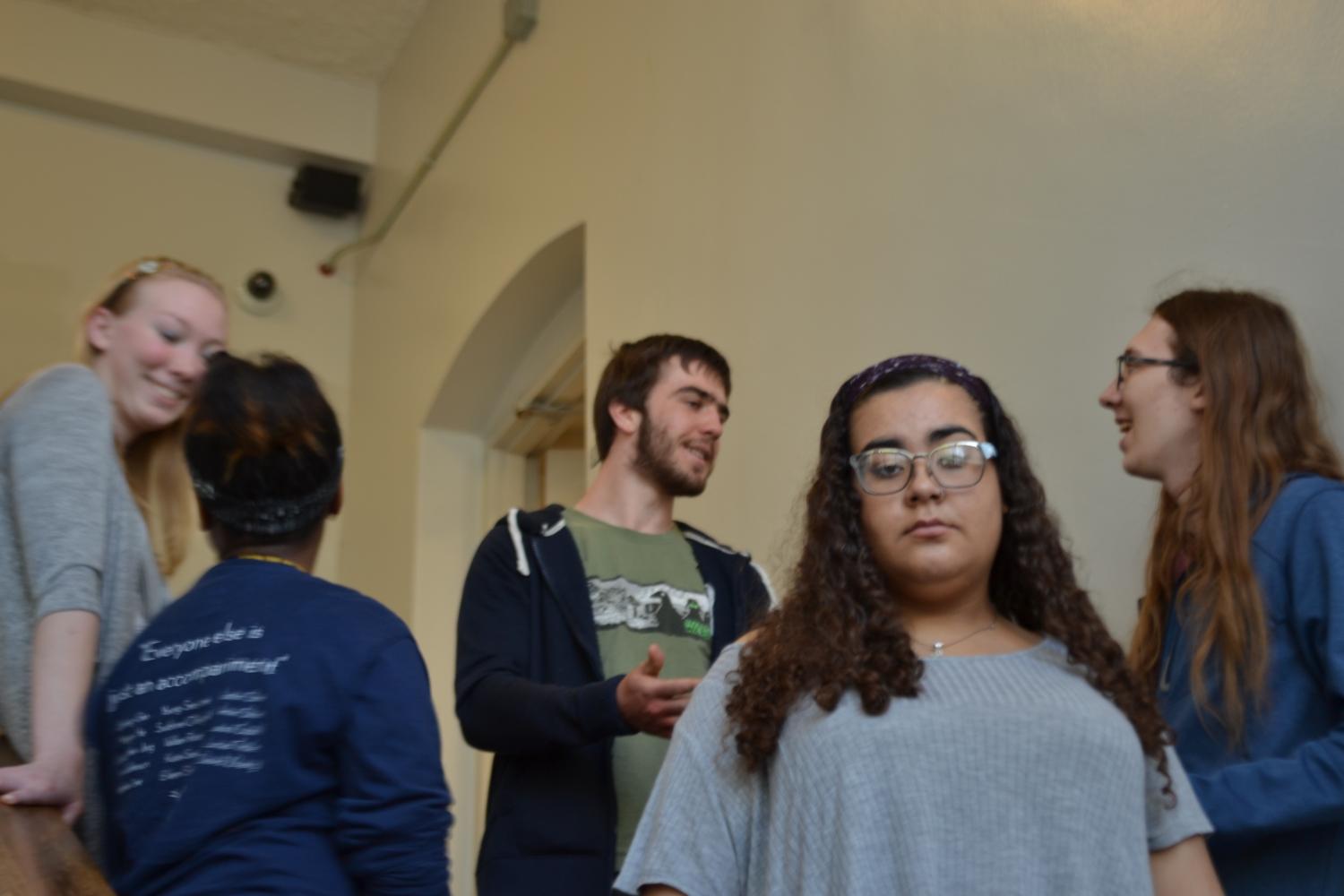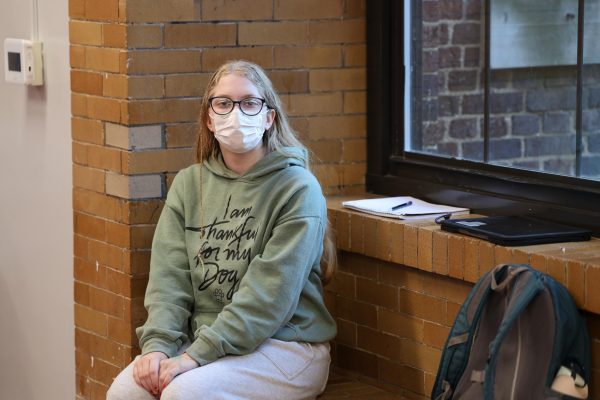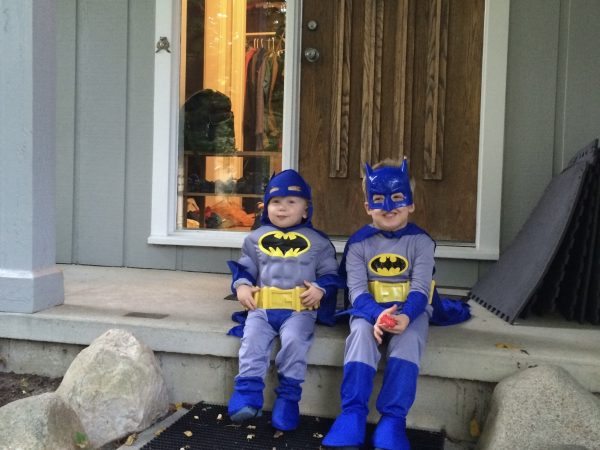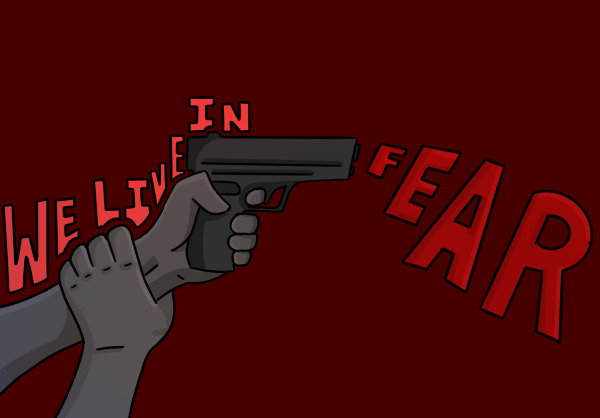Why It’s Okay to Be Offended
“I don’t like when people say ‘you can’t say that,’” said Sawyer Dupree, a 10th grader who argues that society may be too sensitive at times. “How do you feel when people say triggered? Cause’ I think that’s hilarious. I think it’s really funny. But, I’ve met people like ‘you can’t say that, that’s making fun of a real issue,’ but a lot of comedy is making fun of actual things. I think people just want something to fight against.”
According to a study conducted by the Pew Research Center, a significant percentage of Americans have a stance similar to Dupree: 78 percent of Republicans, 37 percent of Democrats, and 68 percent of Independent voters feel that “too many people are easily offended these days over language.”
A part of the 78 percent of Republicans who seem apathetic to the issue, former Republican talk-show host Tomi Lahren has mocked “liberal snowflakes” who are so sensitive that they might “melt on the sidewalk” if anyone dares make some joke suggesting some human beings are inferior to others, and what’s the harm in that? Just some jokes, just some fun, right? However what these jokes do is sprinkle fuel into a fire of prejudice and inequality that is currently raging in society and further isolate marginalized people at the expense of a few laughs.
Being offended by jokes that might poke fun at mental health, transgender people and other categories all wrap into identity politics, an issue that the Democratic party is becoming more and more divided on.
After Hillary Clinton’s loss, a huge amount of the liberal American population spiraled into an upset frenzy. Who and what is to blame for Donald Trump winning the presidential election? In an effort to answer the latter, Mark Lilla of the New York Times wrote that the Democratic Party had been too focused on minority rights, causing white middle-class Americans to feel excluded.
“In recent years, American liberalism has slipped into a kind of moral panic about racial, gender and sexual identity that has distorted liberalism’s message and prevented it from becoming a unifying force capable of governing.” Lilla said in “The End of Identity Liberalism,” published in the New York Times on Nov. 18, 2016.
The message is clear: the Democratic Party must focus on support from those in ‘the middle’ rather than minorities to win future elections. And who exactly is ‘the middle?’ White, working-class citizens, who are constantly highlighted as the reason why Hillary did not win.
Lilla’s Neo-Liberal lense of the election becomes very problematic after analyzing his true ideals from the article. Saying that the Democratic Party is too focused on “others” insinuates that the core of the party is white, heterosexual and cisgender males.
Lilla is annoyed by this intersectionality because he can afford to be annoyed. He prioritized the rights of himself and others like him over the rights of the marginalized. To Lilla, fighting for minority rights is an inconvenience that requires too much time and effort. However, many Americans can’t afford to give up that fight because their lives depend on it.
Lives like Eric Garner, a 44-year-old black man who was strangled to death in 2014 by the NYPD, who claimed he had been selling cigarettes illegally, like the 258 black Americans who, according to the Huffington Post, were murdered by the police in 2016. Lives like Jojo Striker, a transgender woman who was killed on Feb. 8, 2017, who was at first misgendered by the media following her death, and like the six other trans-women who were murdered only within the first two months of 2017. It would be impossible to list all the lives lost stemming from prejudice. Nothing can be done to bring these individuals back to life—but by changing the way we treat minorities and by not allowing the blatant disrespect of certain groups of people—we will begin to alter the idea that some lives are less important than others.
Becoming more politically correct does not harm anyone–maybe except conservatives and evangelicals who ironically oppose safe spaces. It gives support to transgender individuals, people of color, those who feel on the lowest of priorities to even liberals.
The best way to unite everybody is becoming more respectful and inclusive toward marginalized peoples.
Instead of focusing on how to stay away from POC, LGBT+ and disabled rights for the benefit of white working class conservatives, the Democratic Party and frankly, everybody else, should pay attention to those who have felt excluded from society and make them feel like a part of this democracy. Whether it is a politician using a slur or a peer who makes a joke–all factor into the feelings and thoughts of marginalized people. Thus, it is okay to be offended.










